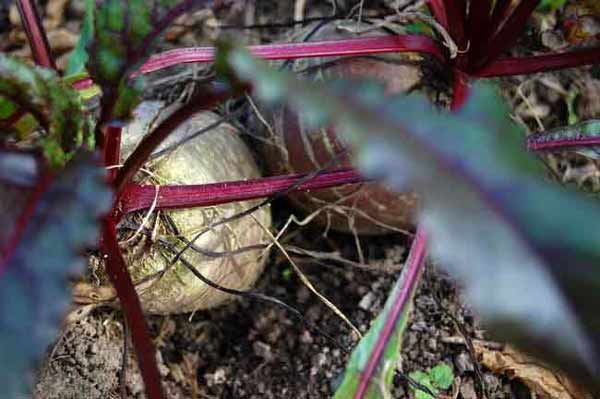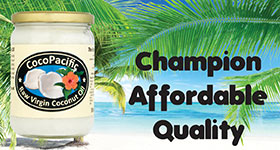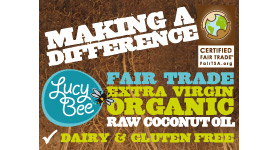|
|
Diet, healing & daily life |
Mark Mabon is one half of the LoveChefs duo, and together with Charlotte Mabon runs workshops on raw food and eating heathily in our climate. The LoveChefs can also be hired to cater for any event, be it a yoga retreat, bar mitzvah or wedding. Below, Mark expounds on raw foods, and how you don't have to go all out to 100% raw to dramatically improve your diet. It just takes a little knowledge and a little common sense. Preventing disease and ill health by changing your diet is something that pharmaceutical companies and their paid politicians love to discredit, but the fact is that thousands of people are doing it all the time – and the wave is growing. Raw food has become popular because it is uniquely successful as a tool for cleansing and healing. But, for daily use, integrating raw foods is a question of balance, particularly in a climate such as the UK. The success people have with diet change is directly proportional to their incentive. Cancer sufferers make and maintain extreme changes, because their life depends on it. People who are just interested in their health generally make slow gradual progress. If you have intolerances and allergies you have a tremendous advantage; your guts are forcing you to make changes that many people would love to make but just don't quite get round to. They're also saving you from serious illness later in life and leading you onto the path of natural health. Your intolerance is an invitation. You are being invited to take the first step on the road to controlling your health through your diet; a unique, individual adventure. No single diet works for all people, your optimum eating pattern will be a combination of your individual constitution, your lifestyle, the climate in which you live, and your history– both the emotional story of the food with which you were nurtured, and the intestinal flora you inherited from your mother. You are the scientist and your body is the lab. Try things, pay attention to how you feel and what works, develop your own healing kitchen. Whilst it can be hard to do, the promise is that you'll feel better, lighter, have more energy and start to experience profound changes throughout your life. We are what we eat after all. What is more, positive changes to your diet have a powerful influence on your mental health. Human beings have about one third as much neural tissue in their guts as they do in their brains, meaning that the digestive system heavily affects mood and thinking patterns. The latest research also demonstrates that autism, depression and schizophrenia are all strongly linked to 'gut dysbiosis', which is the deterioration of the balance of intestinal flora. Candidiasis sufferers can tell you something about this. In our workshops we teach raw food recipes and techniques that are not part of common cooking practice, and we show people how to make this food really tasty. But we also try to cut through the often conflicting advice that comes from different corners of the food and health world by identifying the common principles that almost everybody agrees upon. The following basic guidelines are the basis of dieting for cancer, candidiasis or just high-energy living. All other details are best worked out by the individual. It's not complicated, but it is shocking if you're eating the standard supermarket / TV advertised diet. This diet is a major cause of most modern disease; the only reason this is not common knowledge is that it would destroy a several major industries if this truth were widely accepted. The fact that you are virtually criminalised if you say this in the USA (and Europe is going the same way) is testament to the power of the commercial interests involved. The guidelines 1. Eliminate processed foods from your diet. Eat freshly prepared food made from whole ingredients and cut out the packaged and pre-prepared. This is hard medicine for busy mums and workaholics; convenience foods are horribly convenient. But there is a price for convenience that we pay with our long-term health; if you have an intolerance, you've run out of credit. 2. Improve your fats and oils. Fats and oils are vitally important for health but the vast majority of them sold today have been heat-treated or preserved in such a way that they injure the body instead of giving it the vital nourishment it needs. Oils need to be extra-virgin and any dairy products should be organic and cheese ideally raw. Only eat organic meat. Don't be fooled or beguiled by price. Eat less and higher quality. Avoid foods with low quality oils in them. 3. Improve your sugars. Processed sugar disrupts digestive flora, which is the key to absorbing nutrition as well as your general immunity. It creates paranoid, anxious thinking patterns and erratic behaviour. It is well known as the cause of diabetes but only recently identified as a cause of Alzheimer’s (now being called type 3 diabetes). Goodbye half the supermarket, 98% of the service station aisles, and almost all of TV advertised food. The only way to get through life happily after this fact is to learn the craft of making delicious sweets with 'whole' sweeteners like fruit, dates, stevia and raw honey. A wonderful world of new foods opens to you - if you can break one of the most pernicious and least acknowledged of our modern addictions. 4. Improve your grains. Move from white grains to whole grains and learn how to cook them properly. They need much more attention than they are given. If you're into grains, you'd also better be into chewing… 5. Eat more raw food. Ideally 50% or more. 6. Eat fermented, probiotic foods Unpasteurised sauerkraut or kefir, or at least take a good probiotic. To these basic guidelines add the most important injunction: love what you eat. If you don't enjoy your food, it really won't do you any good. The essential component to this is learning how to season your food, which means how to balance the sweet, salty, sour and oily flavours that define tasty dishes. The only way to learn this is with practice and it's the most useful thing we teach on our courses. Once you've got a bit of confidence you've got the keys to your own creative kitchen, and you can really start to enjoy your own adventure in food. After all these 'rules', you're just dealing with your eating patterns; your habits (oh, only that…!). These are immeasurably powerful forces in our lives, made stronger by:
You can understand why for so many people this is all too much and they'd much rather just take a pill and carry on as they were. Changing habits is hard and the cravings and attachments that are left behind when you remove comfort foods from your life are direct signposts to key traumas of your emotional history, and you can't solve these with your diet. Other personal work inevitably follows. So, bringing in new habits becomes a kind of life path that is an encounter with your history, your biology, the layers of your emotional body, and ultimately the fulfilment of the narrative of the myth of your life as you become free of your past. Dietary change is a powerful political act, both for the liberation of the individual, our society and the wider ecology. Try the LoveChefs' recipes: raw berry cheesecake and stunning raw beetroot and sprouting sunflower seed dip First published August 2013
Click here for more articles
|









